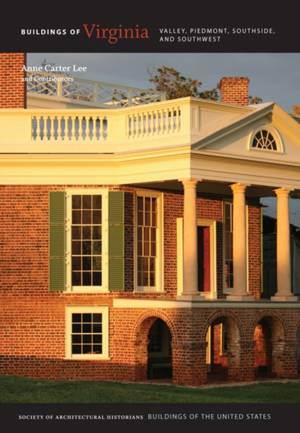
- Retrait gratuit dans votre magasin Club
- 7.000.000 titres dans notre catalogue
- Payer en toute sécurité
- Toujours un magasin près de chez vous
- Retrait gratuit dans votre magasin Club
- 7.000.0000 titres dans notre catalogue
- Payer en toute sécurité
- Toujours un magasin près de chez vous
Description
Virginia is as much a state of mind as a set of geographical boundaries. Its western terrain encompasses dramatically beautiful mountaintops and scrubby lowlands, luxuriantly rich terrain, and rocky, almost untillable land. The green forests, rich loam, red clay, and sandy soil attracted waves of immigrants, newcomers almost as varied as the landscape. They came first to explore and trade and then to work, often to overwork, the land. The result in architecture is one of conservatism and rebellion, a region supremely proud of its history and, all too often, neglectful of its preservation.This second of two volumes devoted to the Old Dominion encompasses five regions (Shenandoah Valley, Allegheny Highlands, Piedmont, Southside, and Southwest Virginia), comprising 55 counties and 20 of the state's independent cities. More than 1,250 building entries document the commonwealth's history from prehistory to early settlement, through the Civil War, Reconstruction, Massive Resistance, and the civil rights movement, to the present day, surveying a range of building types and styles from log cabins to tobacco plantation houses, including the birthplaces of Booker T. Washington and Confederate general Jubal Early, set in close proximity in Franklin County, and the homes of Stonewall Jackson and Robert E. Lee in Lexington. The text, enhanced and enlivened by 300 photographs and 31 maps, canvasses everything from Thomas Jefferson's Poplar Forest and Woodrow Wilson's Presidential Library to Roanoke's modernist Taubman Museum of Art and the Museum of the Shenandoah Valley to Shenandoah National Park and the Blue Ridge Parkway, highlighting along the way Virginia's contributions to literature (Willa Cather to the Waltons), music (the Carter Family and Ralph Stanley), cuisine (apple orchards, turkey farms, and whiskey distilleries), and tourism (Luray Caverns to Natural Bridge).
A volume in the Buildings of the United States series of the Society of Architectural Historians
Spécifications
Parties prenantes
- Auteur(s) :
- Editeur:
Contenu
- Nombre de pages :
- 592
- Langue:
- Anglais
- Collection :
Caractéristiques
- EAN:
- 9780813935652
- Date de parution :
- 06-02-15
- Format:
- Livre relié
- Format numérique:
- Genaaid
- Dimensions :
- 188 mm x 254 mm
- Poids :
- 1360 g

Les avis
Nous publions uniquement les avis qui respectent les conditions requises. Consultez nos conditions pour les avis.






